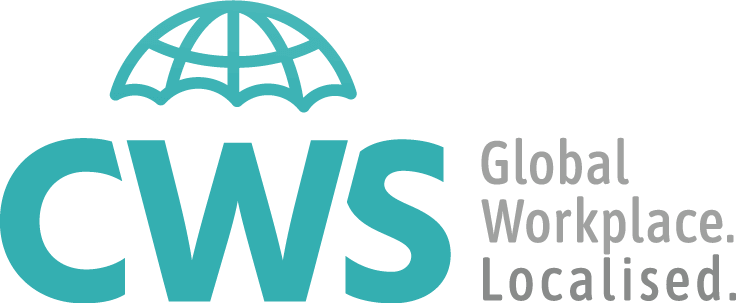Expanding into new markets can be an exciting growth opportunity for businesses, but it also comes with its own set of challenges. One often overlooked factor in successful global expansion is cultural alignment—the process of understanding and integrating the nuances of a country’s culture into your operations. For companies engaging in Employer of Record (EOR) partnerships, cultural alignment is not just a “nice-to-have”; it’s a critical factor that can make or break employee satisfaction, productivity, and business outcomes.
In this article, we’ll explore the importance of cultural alignment in EOR partnerships, provide real-world examples, and offer practical tips to foster cultural understanding.
Why Cultural Alignment Matters
Cultural alignment is about more than just knowing the holidays or speaking the language—it involves recognising how people work, communicate, and make decisions in a particular region. When an EOR partner demonstrates cultural sensitivity and understanding, it builds trust, reduces misunderstandings, and creates an environment where employees feel valued and understood.
Key Benefits of Cultural Alignment:
- Improved Employee Satisfaction: Employees who feel their cultural values are respected are more likely to stay engaged and loyal.
- Better Communication: Cultural awareness minimises misunderstandings that can arise from different work styles or expectations.
- Compliance and Ethical Standards: A culturally aware EOR partner ensures your practices align with local customs and laws.
- Stronger Brand Reputation: Being seen as culturally sensitive can enhance your reputation among employees, partners, and customers.
Cultural Differences in Practice
Let’s look at some examples of how cultural norms can vary and how they might impact EOR partnerships:
1. Israel: Direct Communication and Entrepreneurial Spirit
In Israel, communication tends to be direct and straightforward. Employees value honesty and expect open dialogue with managers. This is paired with an entrepreneurial mindset, where employees often take initiative and look for innovative solutions.
EOR Tip: An EOR partner in Israel should embrace this culture by fostering open communication channels and empowering employees to contribute ideas. For example, a global company might create a feedback loop that allows Israeli employees to voice concerns or suggest improvements.
2. Japan: Hierarchical Structures and Formality
In Japan, workplace culture is heavily influenced by hierarchy and formality. Employees often defer to senior management for decisions and prefer structured workflows. Additionally, relationships are built over time, often requiring patience and respect for traditions.
EOR Tip: When managing employees in Japan, an EOR partner should focus on clear chains of command and formal processes. For instance, sending an official welcome letter in Japanese and respecting business etiquette during onboarding can go a long way.
3. United States: Individualism and Casual Communication
In the US, workplace culture is generally more individualistic, with an emphasis on personal achievement and autonomy. Communication tends to be informal and relationship-building often happens casually.
EOR Tip: For US employees, an EOR partner should encourage flexibility and recognise individual contributions. Implementing performance-based incentives could resonate well with American employees.
4. India: Relationship-Oriented and Collaborative
In India, relationships and trust-building are central to workplace dynamics. Employees may expect a collaborative approach and tend to prioritise group success over individual achievements.
EOR Tip: A culturally aligned EOR partner in India could facilitate team-building activities and foster an environment where employees feel part of a community. Celebrating festivals like Diwali in the workplace can also create a sense of belonging.
How to Ensure Cultural Alignment in EOR Partnerships
Achieving cultural alignment requires effort and intentionality. Here are some practical strategies to ensure your EOR partnership is culturally aware:
1. Work with a Local EOR Partner
Choose an EOR provider with on-the-ground expertise in the country you’re expanding into. They should have a deep understanding of local labour laws, customs, and employee expectations.
2. Provide Cultural Training
Equip your HR teams and managers with cross-cultural training to understand and respect the nuances of the local workforce. This can include workshops, online courses, or even mentorship from local experts.
3. Tailor Onboarding Processes
Onboarding is the first touchpoint for employees, and a culturally sensitive approach can set the tone for a positive relationship. For example:
- Provide contracts in the local language.
- Share information about the company culture and how it integrates with local values.
- Include welcome messages or small gifts that resonate with local traditions.
4. Adapt Policies and Benefits
Offer policies and benefits that align with local expectations. In Israel, for example, offering holiday gifts or flexible work arrangements could be appreciated. In Japan, emphasising job security and structured career paths may resonate more.
5. Foster Open Communication
Encourage feedback and create two-way communication channels between the employer, EOR partner, and employees. Regular check-ins, surveys, and cultural awareness sessions can help bridge gaps.
Case Study: CWS Israel’s Approach to Cultural Alignment
At CWS Israel, we’ve seen first-hand how cultural alignment can transform the success of EOR partnerships. One global client expanding to Israel faced challenges in adapting to the local workforce’s unique culture of direct communication and innovation.
To address this, we:
- Introduced localised onboarding processes, including one-on-one orientation sessions with Payroll and HR specialists.
- Worked with both the clients and employees to create open feedback channels – our satisfaction surveys – allowing Israeli employees to voice their ideas and concerns.
- Adapted holiday schedules and benefits to align with Israeli norms, such as providing holiday gifts for major Jewish holidays.
The result? Increased employee satisfaction, stronger engagement, and a seamless integration into the Israeli market.
Conclusion
Cultural alignment isn’t just about avoiding missteps—it’s about embracing the diversity and richness that each country brings to your business. For companies entering new markets through EOR partnerships, cultural sensitivity can drive engagement, productivity, and long-term success.
By choosing an EOR partner like CWS Israel that prioritises cultural alignment, businesses can confidently expand into global markets, knowing their workforce feels valued and understood.
💡 Ready to explore culturally aligned EOR solutions for your business? Contact us today to learn more!


